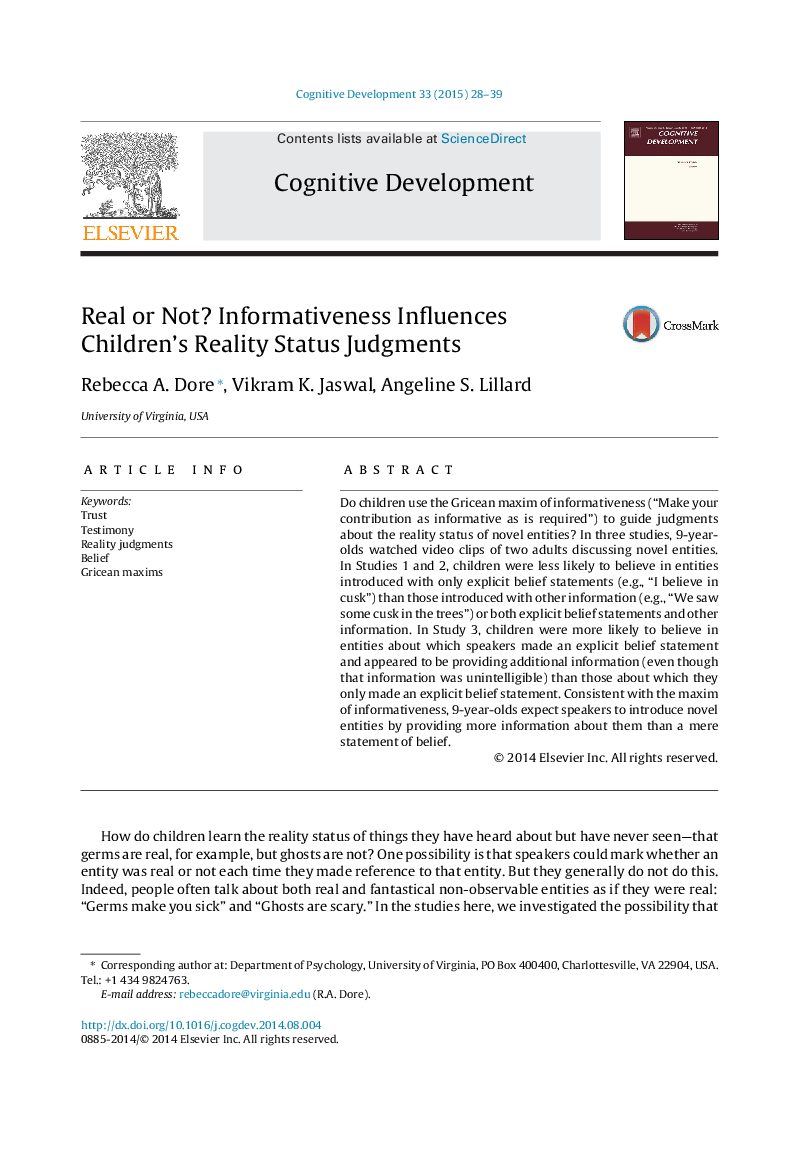| Article ID | Journal | Published Year | Pages | File Type |
|---|---|---|---|---|
| 916464 | Cognitive Development | 2015 | 12 Pages |
•Children expect speakers to be informative when they introduce novel entities.•If speakers profess belief without more information, children are skeptical.•But if speakers profess belief and provide information, children are more believing.•This holds when speakers seem to provide information but the content is obscured.
Do children use the Gricean maxim of informativeness (“Make your contribution as informative as is required”) to guide judgments about the reality status of novel entities? In three studies, 9-year-olds watched video clips of two adults discussing novel entities. In Studies 1 and 2, children were less likely to believe in entities introduced with only explicit belief statements (e.g., “I believe in cusk”) than those introduced with other information (e.g., “We saw some cusk in the trees”) or both explicit belief statements and other information. In Study 3, children were more likely to believe in entities about which speakers made an explicit belief statement and appeared to be providing additional information (even though that information was unintelligible) than those about which they only made an explicit belief statement. Consistent with the maxim of informativeness, 9-year-olds expect speakers to introduce novel entities by providing more information about them than a mere statement of belief.
